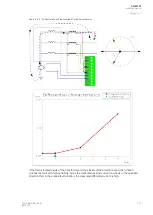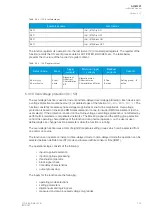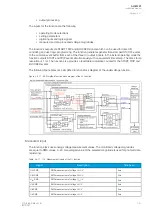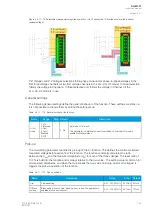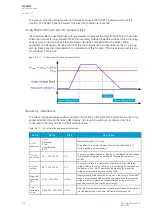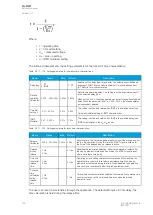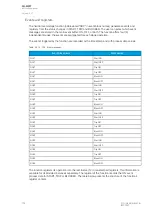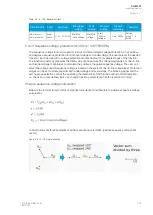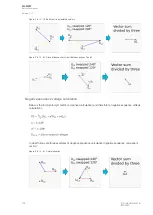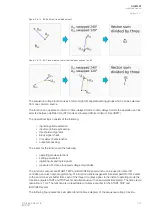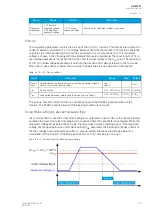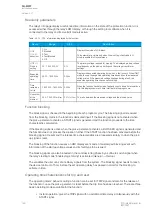
Name
Range
Step
Description
U
A(B)
meas
/U
set
at the
moment
0.00...1250.00U
m
/U
set
0.01U
m
/U
set
The ratio between U
A
or U
AB
voltage and the pick-up value.
U
B(c)
meas
/U
set
at the
moment
0.00...1250.00U
m
/U
set
0.01U
m
/U
set
The ratio between U
B
or U
BC
voltage and the pick-up value.
U
C(A)
meas
/U
set
at the
moment
0.00...1250.00U
m
/U
set
0.01U
m
/U
set
The ratio between U
C
or U
CA
voltage and the pick-up value.
U
meas
/U
set
at the
moment
0.00...1250.00U
m
/U
set
0.01U
m
/U
set
The ratio between the lowest measured phase or line voltage and the
pick-up value.
Function blocking
The block signal is checked in the beginning of each program cycle. The blocking signal is received
from the blocking matrix in the function's dedicated input. If the blocking signal is not activated when
the pick-up element activates, a START signal is generated and the function proceeds to the time
characteristics calculation.
If the blocking signal is active when the pick-up element activates, a BLOCKED signal is generated and
the function does not process the situation further. If the START function has been activated before the
blocking signal, it resets and the release time characteristics are processed similarly to when the pick-
up signal is reset.
The blocking of the function causes an HMI display event and a time-stamped blocking event with
information of the startup voltage values and its fault type to be issued.
The blocking signal can also be tested in the commissioning phase by a software switch signal when
the relay's testing mode "Enable stage forcing" is activated (
General
→
Device).
The variables the user can set are binary signals from the system. The blocking signal needs to reach
the device minimum of 5 ms before the set operating delay has passed in order for the blocking to
activate in time.
Operating time characteristics for trip and reset
The operating timers’ behavior during a function can be set for TRIP signal and also for the release of
the function in case the pick-up element is reset before the trip time has been reached. There are three
basic operating modes available for the function:
• Instant operation: gives the TRIP signal with no additional time delay simultaneously with the
START signal.
• Definite time operation (DT): gives the TRIP signal after a user-defined time delay regardless
of the measured voltage as long as the voltage is above the
U
set
value and thus the pick-up
element is active (independent time characteristics).
• Inverse definite minimum time (IDMT): gives the TRIP signal after a time which is in relation
to the set pick-up voltage
U
set
and the measured voltage
U
m
(dependent time
characteristics).
The IDMT function follows this formula:
A
AQ
Q-M257
-M257
Instruction manual
Version: 2.07
© Arcteq Relays Ltd
IM00021
145
Summary of Contents for AQ-M257
Page 1: ...AQ M257 Motor protection IED Instruction manual...
Page 2: ......

